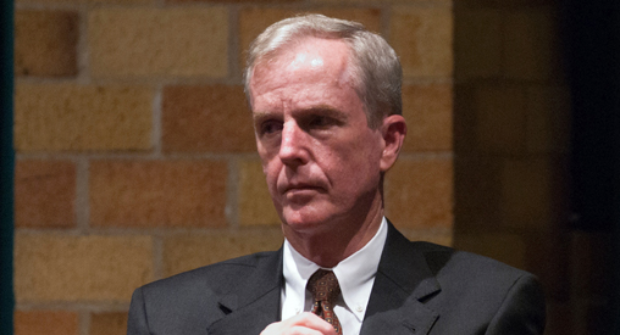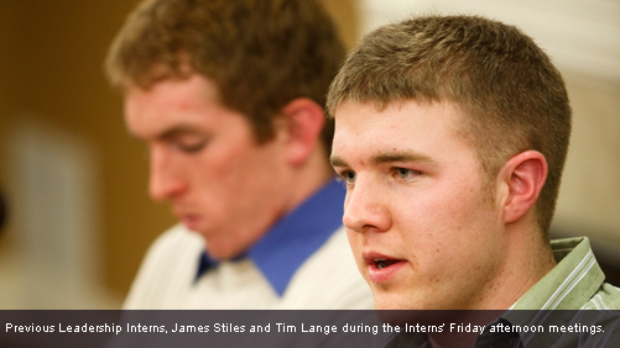This spring saw the inauguration of the Thought and Culture lecture series in the Catholic Studies graduate program. The series explores the dynamism and vitality of Catholicism as it has impacted human thought and culture. This is at the heart of the Catholic Studies intellectual project, and the new lecture series provides a forum for presenting the integrating interdisciplinary work of the program. Dr. John Boyle, the director of the graduate program, said, “We have a remarkable faculty in the graduate program and want to make their contributions to Catholic Studies known to a wider audience.”Dr. Don Briel, the Koch Chair in Catholic Studies and the director of the Center for Catholic Studies, gave the inaugural lecture, “Why Newman Matters.” Newman was beatified Sept. 19, 2010, by Benedict XVI. Boyle remarked, “It seemed particularly fitting to mark the beatification with the inaugural Thought and Culture lecture.”John Henry Cardinal Newman, born in England in 1801, was a priest of the Church of England and one of its most influential thinkers. He stunned friends and fellow Anglicans with his conversion to Roman Catholicism in 1845. Newman was a poet, novelist and essayist who wrote on a wide range of religious, philosophical, historical and educational topics. His penetrating mind, which articulated a deep integrating vision of reality, has profoundly shaped Catholic thinking, including the work of Catholic Studies at St. Thomas. Newman died in 1890. The poet T.S. Eliot wrote of Newman’s importance to our age: “I can think of no Christian writer more to be commended than Newman to those who doubt, but who have the mind to conceive, and the sensibility to feel, the disorder, the futility, the meaninglessness, the mystery of life and suffering, and who can only find peace through a satisfaction of the whole being.”Briel, an authority on the thought of Blessed John Henry Newman, regularly teaches a graduate seminar on the major works of Newman in which students learn to see Newman’s integrating vision which is, in so many ways, characteristic of the goals of Catholic Studies. Briel writes that Newman “had a deep sense of the dynamic tension of relations within the circle of knowledge and recognized that to know the implications of any discipline depended on a fuller sense of its relations to the whole. So if the study of economics, say, is cut off from political science, or ethics, or law, and perhaps especially from theology, that study will not be merely incomplete but fundamentally disordered. If we did not grasp the implications of this point 10 years ago perhaps recent events have encouraged us to do so now.”Current students, alumni and faculty of the graduate program enjoyed dinner together before the lecture. The alumni appreciated the opportunity to be together and catch up with faculty. A reception with Briel was held after the lecture in Sitzmann Hall.Briel’s lecture is available online on the Master of Arts in Catholic Studies website: www.stthomas.edu/cathstudies/masters.Dr. Don Briel’s lecture, “Why Newman Matters”:“Newman’s insistence on the university’s obligation to teach universal knowledge; that its principal end was not the advancement but rather the transmission of knowledge; his argument that liberal education involves the pursuit of knowledge for its own sake; his provocative claim that a person narrowly trained in one field will not be competent even in that one; his argument that society demands something more of persons than mere technical skill; and his repeated emphasis that a university education is no guarantee of virtue and is, in fact, often its counterfeit and foe, now strike many as romantic and unreal. … Even more striking is his insistence that this assistance is not merely one of adding a religious value to the university’s secular identity but rather one of enabling the university to fulfill its specific intellectual mission.”

Graduate Program Initiates Thought and Culture Lecture Series
The next Thought and Culture lecture will be given by Father Michael Keating on ?Why Dawson Matters" at 7:30 p.m. Wednesday, Oct. 12 in the O'Shaughnessy Educational Center auditorium.






